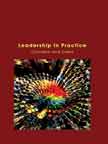Mumbai's Dabbawalas - An Entrepreneurial Success Story
|
|
ICMR HOME | Case Studies Collection
Case Details:
Case Code : LDEN028
Case Length : 10 Pages
Period : 1950-2004
Pub Date : 2004
Teaching Note : Available
Organization : Nutan Mumbai Tiffin Box Suppliers
Industry : Service
Countries : USA
To download Mumbai's Dabbawalas - An Entrepreneurial Success Story case study
(Case Code: LDEN028) click on the button below, and select the case from the list of available cases:

Price:
For delivery in electronic format: Rs. 300;
For delivery through courier (within India): Rs. 300 + Shipping & Handling Charges extra
»
Leadership and Entrepreneurship Case Studies
» Case Studies Collection
» ICMR HOME
» Short Case Studies
» View Detailed Pricing Info
» How To Order This Case
» Business Case Studies
» Area Specific Case Studies
» Industry Wise Case Studies
» Company Wise Case Studies

Please note:
This case study was compiled from published sources, and is intended to be used as a basis for class discussion. It is not intended to illustrate either effective or ineffective handling of a management situation. Nor is it a primary information source.
Chat with us

Please leave your feedback

|
|




<< Previous
A Six Sigma Performance Contd...
|
In 2003, Paul S. Goodman and Denise Rousseau, both faculty at
the Graduate School of Industrial Administration of Carnegie Mellon University,
made their first full-length documentary called 'The Dabbawallas'. According to
the press release of the TV station presenting the documentary, "The film also
serves as a counterpoint. Instead of asking how knowledge in developing
countries can help less developed countries, this film focuses on how developed
countries can learn from less developed countries".7
Back home, the Dabbawalas were invited to speak at Confederation of Indian
Industry (CII)8 meets and at leading
Indian business schools such as IIM, Bangalore and Lucknow. |

|
Background Note
The origin of the Dabbawalas' lunch delivery service dates back to the 1890s
during the British raj.9 At that time,
people from various communities migrated to Mumbai for work. As there were
no canteens or fast food centers then, if working people did not bring their
lunch from home, they had to go hungry and invariably, lunch would not be
ready when they left home for work.
|
|
Besides, different communities had different tastes and preferences which
could only be satisfied by a home-cooked meal. Recognizing the need, Mahadeo
Havaji Bacche (Mahadeo), a migrant from North Maharashtra,10
started the lunch delivery service. For his enterprise, Mahadeo recruited
youth from the villages neighboring Mumbai, who were involved in
agricultural work. They were willing to come as the income they got from
agriculture was not enough to support their large families, and they had no
education or skills to get work in the city. The service started with about
100 Dabbawalas and cost the client Rs.2 a month. Gradually, the number of
Dabbawalas increased and the service continued even though the founder was
no more... |
Excerpts>>
|
|










